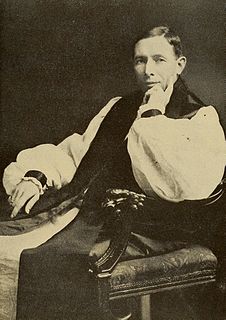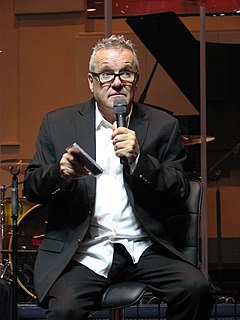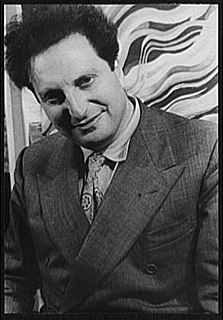A Quote by Juana Inés de la Cruz
The greater evil who is in- When both in wayward paths are straying? The poor sinner for the pain Or he who pays for the sin?
Related Quotes
The cliché, God hates the sin but love the sinner, is false on the face of it and should be abandoned. Fourteen times in the first fifty Psalms alone, we are told that God hates the sinner, His wrath is on the liar, and so forth. In the Bible, the wrath of God rests both on the sin (Romans 1:18ff) and on the sinner (John 3:36).
Evil is neither suffering nor sin; it is both at the same time, it is something common to them both. For they are linked together; sin makes us suffer and suffering makes us evil, and this indissoluble complex of suffering and sin is the evil in which we are submerged against our will, and to our horror.
Concluding a short series on sin: It is appalling to think of a power so strong that it can annihilate with the irresistible force of its grinding heel; but it is inspiring to consider an Almightiness that transforms the works of evil into the hand-maidens of righteousness and converts the sinner into the saint. And it is this latter power which eternal Love possesses and exhibits. He persistently dwells in the sinner until the sinner wakes up in His likeness and is satisfied with it.
The human spirit will not even begin to try to surrender self-will as long as all seems to be well with it. Now error and sin both have this property, that the deeper they are the less their victim suspects their existence; they are masked evil. Pain is unmasked, unmistakable evil; every man knows that something is wrong when he is being hurt.
What are you to do? You are always to remember that you are the child of a Great Father. You must not think that you are a sinner, that you are a degraded person. If you think that you are a sinner, it means you are meditating on sin! When sin has become the object of your meditation, you will become a sinner, because a person becomes just like the object of his or her ideation. We become the object of our meditation.
Sannyas is celebration of life, and sin is natural: natural in the sense that you are unconscious - what else can you do? In unconsciousness, sin is bound to happen. Sin simply means that you don't know what you are doing, you are unaware, so whatsoever you do goes wrong. But to recognize that "I am a sinner" is the beginning of a great pilgrimage. To recognize that "I am a sinner" is the beginning of real virtue. To see that "I am ignorant" is the first glimpse of wisdom.







































